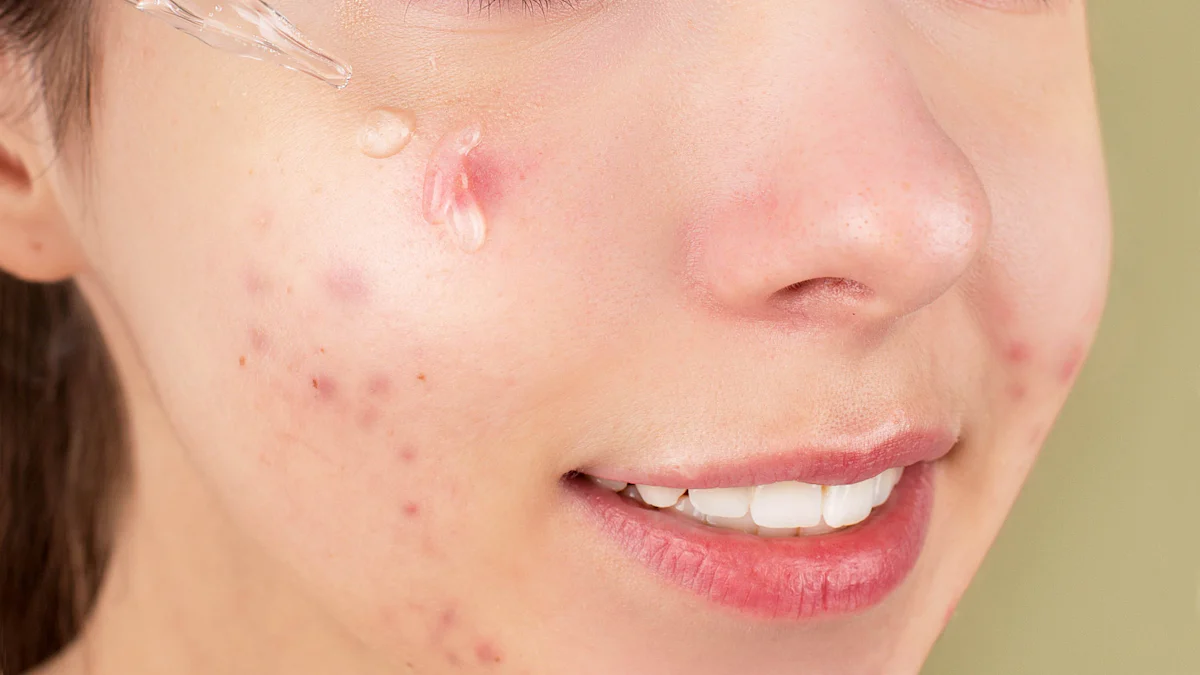
Pregnancy brings about a cascade of hormonal changes within the body, influencing various aspects of health and well-being. Among these changes, Hormonal Changes and Your Skin: What to Expect During Pregnancy play a significant role. Understanding the impact of these hormonal fluctuations on the skin is crucial for expectant mothers. Skin alterations during pregnancy are not uncommon, with issues like stretch marks, acne, and hyperpigmentation affecting many women. Exploring these transformations can provide insights into how to manage and care for the skin effectively during this unique phase.
Hormonal Changes and Your Skin: What to Expect During Pregnancy
Role of Estrogen and Progesterone
-
Estrogen and progesterone levels rise during pregnancy, leading to various skin changes.
-
Higher levels of these hormones stimulate the oil glands, resulting in a healthy and natural radiance.
-
The increase in estrogen suppresses IL-2 production, while progesterone influences the Th2 cytokine profile.
Impact on Skin Sensitivity and Pigmentation
-
Pregnancy hormones like estrogen and progesterone can affect the skin's sensitivity to the sun.
-
These hormonal fluctuations can cause an increase in pigmentation, leading to changes in skin color.
-
Estrogen joins other hormones to cause hyperpigmentation like darker nipples and melasma.
Immune System and Cardiovascular Changes
Effects on Skin Appearance
"Due to these physiological changes, cutaneous changes in pregnancy may include pigmentation, hair, nail, glands, connective tissues, and blood vessels." - Experts
-
The most common pigmentation change in pregnancy is called hyperpigmentation or darkening of the skin.
Common Symptoms and Signs
"Hormonal changes can lead to an increase in oil production, resulting in acne breakouts." - Dr. Galimberti
-
Progesterone can also increase hair growth and oil production during pregnancy.
Common Skin Changes During Pregnancy

Acne and Oil Production
Causes and Prevention
-
Acne during pregnancy is primarily caused by hormonal fluctuations that stimulate oil production in the skin.
-
The increase in oil production can lead to clogged pores, resulting in acne breakouts.
-
To prevent acne, maintaining a consistent skincare routine is essential. Gentle cleansing and moisturizing can help manage oil levels.
-
Avoiding harsh chemicals and abrasive exfoliants is crucial to prevent further irritation and inflammation.
Safe Treatments
-
When dealing with pregnancy-related acne, it is important to consult a dermatologist for safe treatment options.
-
Topical treatments containing ingredients like benzoyl peroxide or glycolic acid may be recommended under professional guidance.
-
However, certain acne medications like retinoids should be avoided during pregnancy due to potential risks.
Hyperpigmentation and Melasma
Causes and Prevention
-
Hyperpigmentation refers to darkening of the skin, often seen as dark spots or patches during pregnancy.
-
This condition is influenced by hormonal changes that stimulate melanin production in the skin.
-
Preventive measures include wearing sunscreen daily to protect the skin from UV-induced pigmentation.
-
Maintaining a healthy diet rich in antioxidants can also help reduce the risk of hyperpigmentation.
Safe Treatments
-
For existing hyperpigmentation, gentle skincare products containing vitamin C or niacinamide may aid in brightening the skin tone.
-
Professional treatments such as chemical peels or laser therapy should only be considered post-pregnancy for safety reasons.
Stretch Marks and Vein Changes
Causes and Prevention
-
Stretch marks are common during pregnancy due to rapid skin stretching as the body grows to accommodate the baby.
-
Keeping the skin well-hydrated with moisturizers can improve its elasticity and reduce the likelihood of stretch marks forming.
-
Massaging the abdomen gently with oils or creams can also help maintain skin suppleness during this period.
Safe Treatments
-
While complete prevention of stretch marks may not be possible, early intervention with topical treatments like cocoa butter or hyaluronic acid can help minimize their appearance postpartum.
"Limited evidence suggests that two topical treatments may help prevent striae." - Prevention of Stretch Marks during Pregnancy
Managing Pregnancy Skin Changes

Skincare Routine Adjustments
Safe Ingredients to Use
-
Vitamin C: Known for its brightening properties, vitamin C can help even out skin tone and reduce hyperpigmentation.
-
Niacinamide: This ingredient is effective in improving the skin's barrier function and reducing inflammation, making it ideal for pregnancy skincare.
-
Hyaluronic Acid: Hydrating and gentle, hyaluronic acid helps maintain skin moisture levels without clogging pores.
Ingredients to Avoid
-
Retinoids: Prescription retinoid-containing products should be avoided during pregnancy due to potential risks of congenital irregularities.
-
Salicylic Acid: While over-the-counter concentrations are generally safe, high doses of salicylic acid should be avoided during pregnancy.
-
Benzoyl Peroxide: Although commonly used for acne treatment, it's advisable to consult a dermatologist before using products containing benzoyl peroxide.
Professional Advice and Treatments
When to Consult a Dermatologist
"Seeking professional advice from a dermatologist is recommended if you experience persistent or severe skin issues during pregnancy." - Skin Health Experts
-
If you notice any unusual changes in your skin that persist despite home care remedies, it's advisable to schedule a consultation with a dermatologist.
-
Dermatologists can provide personalized recommendations based on your specific skin concerns and medical history.
Safe Professional Treatments
"Professional treatments like chemical peels or laser therapy should be postponed until after pregnancy to ensure safety." - Dermatology Specialists
-
While some professional treatments may be safe postpartum, it's essential to prioritize the health of both the mother and the baby during pregnancy.
-
Consulting with a dermatologist can help determine suitable professional treatments tailored to your individual needs.
-
Summarize the essential aspects of managing pregnancy skin changes discussed in the blog.
-
Reassure expectant mothers that most skin alterations during pregnancy are temporary and manageable.
-
Remember, seeking professional advice from a dermatologist can provide personalized solutions for any persistent skin concerns.

